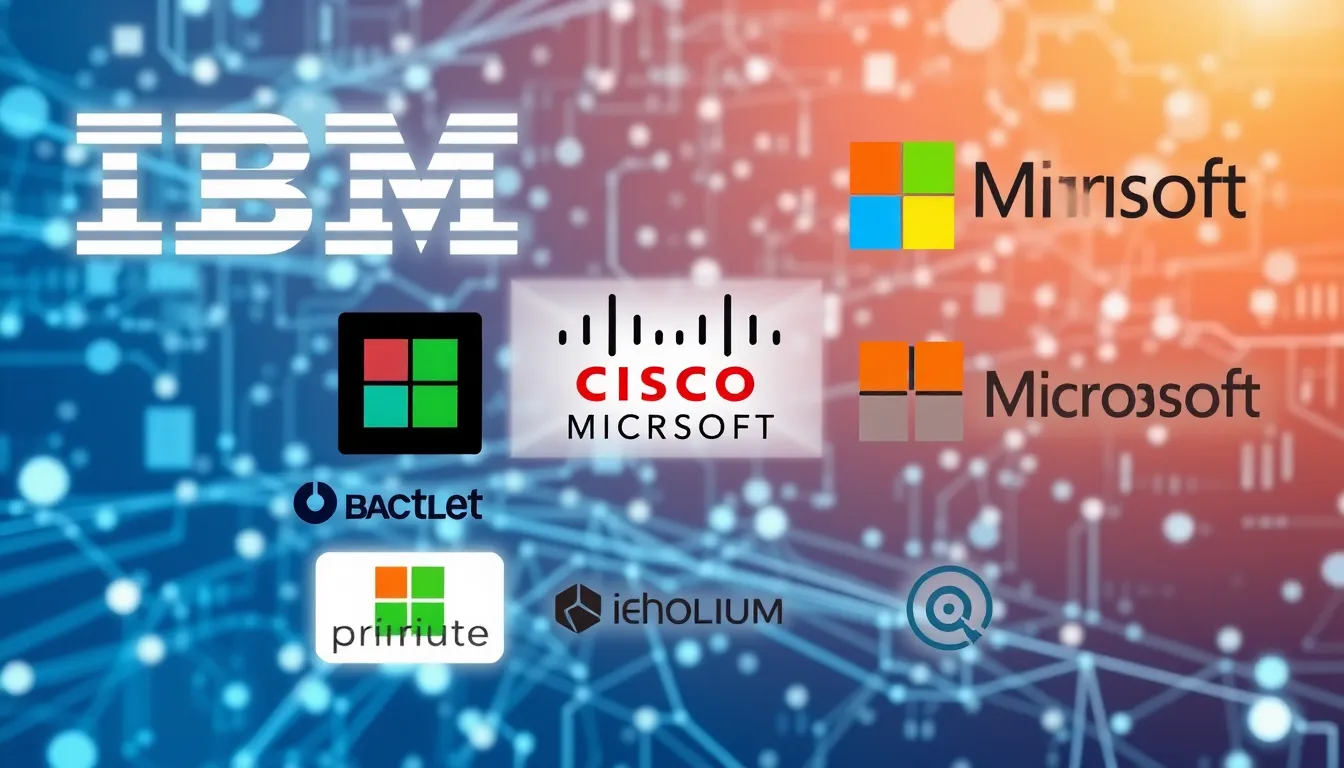The Internet of Things (IoT) is taking the world by storm, turning everyday objects into smart devices that can talk to each other. Imagine your fridge reminding you to buy milk while your thermostat adjusts the temperature based on your mood—now that’s the future! But who’s behind this magical transformation? Enter IoT development companies, the wizards crafting the spells that connect our lives in ways we never thought possible.
These companies are not just tech-savvy; they’re the architects of a smarter, more efficient world. With their expertise, they’re making everything from smart homes to intelligent cities a reality. If you think your toaster can’t get any smarter, think again! Dive into the world of IoT development and discover how these innovators are shaping the future—one connected device at a time.
Table of Contents
ToggleOverview Of Internet Of Things Development Companies
Internet of Things (IoT) development companies design and create interconnected devices that improve the functionality of everyday objects. These firms play a critical role in shaping smart homes, intelligent cities, and advanced industrial applications. The services offered by IoT development companies include device design, software development, and system integration.
Expertise in various industries allows these companies to tailor solutions based on specific needs. For instance, healthcare IoT applications can track patient data in real time, while agricultural solutions optimize resource use through smart sensors.
Development teams often comprise engineers, data scientists, and software developers who collaborate to produce effective IoT solutions. Innovations introduced by these companies can lead to improved efficiency and reduced operational costs.
Investment in IoT technologies continues to grow, with spending on IoT solutions expected to reach over $1 trillion by 2025 according to IDC. Partnerships between IoT development companies and businesses enable access to cutting-edge technology, fostering competitive advantages.
Challenges such as data security and integration complexities require careful planning and strategy from these firms. Organizations must remain vigilant about evolving standards and regulations in the IoT landscape.
Ultimately, IoT development companies serve as catalysts for the smart device revolution, driving advancements that enhance convenience, efficiency, and quality of life. They enable businesses and consumers alike to harness the benefits of a connected world.
Key Players In The Industry

The IoT landscape features a mix of established companies and emerging startups, each contributing uniquely to the evolution of interconnected devices.
Established Companies
Well-known tech giants like IBM, Cisco, and Microsoft dominate the IoT development space. These companies leverage extensive resources and experience to create comprehensive IoT solutions. With a focus on areas such as cloud computing, data analytics, and cybersecurity, they deliver robust platforms for businesses. IBM’s Watson IoT offers advanced AI capabilities, enhancing device intelligence. Cisco’s networking solutions ensure reliable connectivity for smart devices. Microsoft’s Azure IoT platform provides scalability for enterprises looking to expand their IoT initiatives. Their collaborative approaches and tailored solutions lead to improvements in efficiency and innovation across various industries.
Emerging Startups
Numerous startups are breaking into the IoT market, driving innovation and competition. Companies like Particle, Iotivity, and Helium focus on specific niches within the IoT ecosystem. Particle specializes in IoT hardware and cloud solutions, making it easier for developers to build connected products. Iotivity promotes interoperability among IoT devices, streamlining communication across platforms. Helium creates decentralized wireless networks for IoT devices, improving connectivity in underserved areas. These startups often operate with agility and creativity, addressing unique challenges and offering specialized services that cater to specific customer demands. Their fresh perspectives spark advancements that influence future IoT developments.
Services Offered By IoT Development Companies
IoT development companies provide various specialized services to meet the demands of the growing connected landscape. Their offerings encompass key areas that enhance operational efficiency and drive innovation across industries.
Custom IoT Solutions
Custom IoT solutions are tailored to meet specific business needs. These solutions often involve the development of smart devices and applications designed for particular environments. Examples include smart agriculture systems, which optimize resources and increase crop yields. Specialized companies collaborate closely with clients to understand unique requirements, crafting systems that integrate seamlessly with existing infrastructure. Developers emphasize scalability and flexibility in these solutions, ensuring businesses can grow and adapt as technology evolves.
Consulting and Strategy
Consulting and strategy services guide businesses through IoT adoption. Experienced consultants assess current operations to identify areas for improvement and innovation opportunities. Developing a comprehensive IoT strategy includes evaluating existing technologies and determining how to implement new solutions effectively. These companies provide insights on market trends and best practices, enabling organizations to make informed decisions. Strategic planning often includes risk management elements, ensuring clients confront challenges related to data security and integration complexities responsibly.
Factors To Consider When Choosing An IoT Development Company
Selecting the right IoT development company involves multiple factors. Assessing expertise and experience stands as a priority alongside client reviews and case studies.
Expertise and Experience
Evaluate the company’s background in IoT development. Companies with years of experience demonstrate deep knowledge in emerging technologies and market trends. Ensure they’ve developed solutions across various industries like healthcare and agriculture. Diverse project portfolios highlight adaptability and technical proficiency. A robust track record in delivering successful IoT applications showcases their capability to handle complexities and challenges associated with interconnected devices. Prioritize partnerships with companies that stay updated on IoT advancements to leverage new opportunities. Effective collaboration with clients is essential for tailored solutions, reflecting an understanding of business needs.
Client Reviews and Case Studies
Investigate client reviews and case studies to gauge a company’s reputation. Positive feedback often reveals strengths in project execution, communication, and support. Case studies illustrate practical applications of their expertise, showcasing past projects and their impact. Thorough analysis of these documents provides insights into the company’s problem-solving abilities and innovative approaches. In addition to satisfying clients, reviews reveal overall satisfaction levels and return on investment achieved through implemented solutions. Choose a company with a proven history of exceeding client expectations to ensure a strong partnership in IoT development.
Trends In IoT Development
IoT development experiences rapid evolution, with trends shaping its future. Increased adoption of edge computing enhances processing speed and reduces latency. Companies leverage this technology by enabling real-time data analysis closer to data sources, which optimizes performance for applications like smart cities and industrial automation.
Another significant trend involves the integration of artificial intelligence (AI) with IoT systems. AI-driven analytics provide unprecedented insights into device performance and user behavior, enabling proactive decision-making. Firms utilize AI algorithms to facilitate predictive maintenance and enhance user experience significantly.
Security stands at the forefront of IoT development challenges. Organizations increasingly focus on implementing robust security measures to protect sensitive data and ensure device integrity. Encrypted communications and advanced authentication protocols help mitigate risks associated with cybersecurity threats.
Sustainability also impacts IoT development trends. Developers create solutions aimed at reducing energy consumption and resource waste. Smart meters and connected devices monitor consumption patterns, leading to more efficient use of resources in sectors such as agriculture and manufacturing.
Collaborative ecosystems improve device interoperability and facilitate innovation. Partnerships between established companies and startups drive the adoption of open standards and protocols. These collaborative efforts yield solutions that enhance device compatibility and encourage broader IoT adoption.
Regulatory compliance shapes the IoT landscape as well. Increasing scrutiny on data privacy and protection necessitates adherence to regulations. Organizations prioritize compliance measures, ensuring their IoT products meet legal requirements while fostering consumer trust.
Emerging technologies like 5G connectivity revolutionize IoT development. The higher bandwidth and lower latency associated with 5G networks enable new applications and enhance existing ones. Companies capitalize on these advancements to expand their IoT offerings, providing users with faster and more reliable experiences.
The landscape of IoT development is rapidly evolving with companies leading the charge in creating innovative solutions. Their expertise not only enhances everyday objects but also drives significant advancements across various industries. As businesses increasingly recognize the potential of IoT technologies, strategic partnerships with development firms will be essential for unlocking new efficiencies and competitive advantages.
With the projected growth in IoT investment, these companies will continue to play a pivotal role in shaping the future of connected devices. By addressing challenges such as data security and integration complexities, they pave the way for a smarter and more efficient world. Embracing IoT development is not just an option; it’s a necessity for businesses aiming to thrive in an interconnected future.



